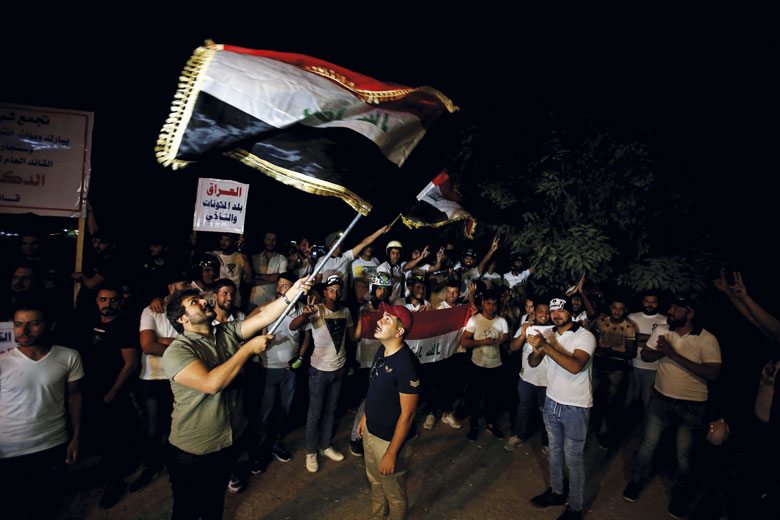

Talk was rife at the Iraq reconstruction conference in mid-February that the issue at stake was more political than economic. It has been reported that Washington pressured the Kuwaitis to organise the conference to bring together allies, led by the US and other friendly countries - namely the GCC states - in the wake of the recently announced cooperation between Russia, Iran and Iraq for intelligence sharing as well as to open a flight corridor to allow flights between Russia and Syria.
With Iran and Russia continuing to support Syria’s leader Bashar al-Assad, which the US does not, and with Iran understood to be continuing to support Hezbollah in Lebanon and the Houthis in Yemen, the US needs to ensure that Iraq’s Shiite-led government remains drawn to its Sunni neighbours to the south to minimise or limit the Iranians’ influence in Iraq and maintain the balance of power in the region.
The list of countries that have pledged loans and investments toward the reconstruction of Iraq in the aftermath of the war with Islamic State in Iraq and Syria (Isis) tends to confirm the political undercurrent at play.
Turkey extended the largest pledge to the reconstruction fund to date, offering $5bn in credit line, followed by the US Exim Bank’s $3bn. Together the GCC states led by Kuwait and Saudi Arabia pledged $5bn in loans, investments and export credit, with the Kuwait-based Arab Fund for Economic and Social Development and the Jeddah-based Islamic Development Bank promising to extend $1.5bn and $500m, respectively.
US Secretary of State Rex Tillerson, the Kuwaiti deputy prime minister Sabah al-Khaled al-Hamad al-Sabah, as well as several senior European Union officials, also consistently stressed during the conference that Iraq’s stability is vital to the overall stability of the region.
Politics apart, the majority of the 1,850 delegates that showed up at the investor roadshow held this week in Kuwait appear to be keen in exploring the projects that are being offered to the private sector for investments.
Investors indicated the strongest interest in Iraq’s power sector particularly in the plan to build 7,000MW of solar power over the long term. The conference was told that seven specific projects have been proposed for the first wave of photovoltaic (PV) plants in seven locations that would generate 500MW of power. The other priority in the power sector is the use of thermal gas power as well as the capture of flared gas to meet Iraq’s demand, which is estimate to reach 24,000MW by 2020 requiring $25bn in investments.
The conference highlighted a few public-private partnership (PPP) success stories such as the 3,000MW Bismaya power plant, which supplies electricity to Baghdad. Jordan-based Mass Group Holding was awarded the build, own, operate (BOO) contract for the plant in 2014 and the first phase of the plant, which has a capacity of 1,500MW, is now operating on a simple cycle.
Investors also showed strong interest to explore projects such as the privatisation of oil and gas pipelines and filling stations, as well as the refurbishment of old oil wells and reserves, in addition to numerous projects in the transport, health care and education sectors.
Indeed, while the business environment in most of Iraq’s regions is expected to remain hostile to investments due to the staggering political, economic, security and institutional risks, the heavy involvement of the Washington-based World Bank Group and International Finance Corporation in an advisory capacity seems to allay to a certain extent investors’ trepidation in approaching the Iraqi market. The IFC’s role, for instance, is being extended to the structuring of most of the large projects across the sectors mentioned.
Based on the initial turnout of investors, it does appear that Iraq and its allies have achieved a successful first step to what looks like a very long and perhaps tenuous reconstruction journey.
You might also like...

Amiral cogen eyes financial close
26 April 2024

Lunate acquires 40% stake in Adnoc Oil Pipelines
26 April 2024

Saudi Arabia's Rawabi Holding raises SR1.2bn in sukuk
26 April 2024

Iraq oil project reaches 70% completion
26 April 2024
A MEED Subscription...
Subscribe or upgrade your current MEED.com package to support your strategic planning with the MENA region’s best source of business information. Proceed to our online shop below to find out more about the features in each package.








